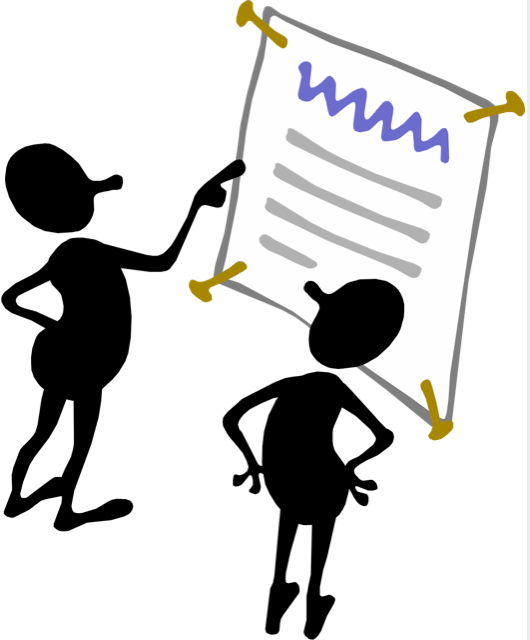This Meeting Icebreaker is from our collection of practical tips, tools, and techniques. Our tips are gathered from our experience, training classes, and alumni contributions.
IceBreaker Tip One: Warming Up A Group
This icebreaker tip is useful for people who are unfamiliar with each other, or for familiar groups that need some new dimension to their relationships for the purpose of the workshop. Because it may take up to one-half hour for a group of nine, manage your time accordingly.
- 2 minutes: Have each person write their name on a small piece of paper. As they finish, collect the names in a container (e.g., bowl, box). Next, have each participant draw or select a piece of paper.
- 5-10 minutes: Allow a few minutes for each person to find the person named on their piece of paper and “interview” them. In addition, encourage them to take notes from the interview because you want them to share the highlights.
- 3 minutes: Now have the participants write a newspaper or magazine headline that describes an event or accomplishment of the person named on their piece of paper. Consider a specific newspaper or magazine that most members of the group are likely to read. Either emphasize a personal or professional accomplishment, but consistently emphasize the perspective you choose. Point your participants to a frequently read page or within a specific column of the magazine or newspaper.
- 5-10 minutes: Finally, have each person read the headline for the person named on the piece of paper.
IceBreaker Tip Two: Alternative
Move the headline to some point in the future (e.g., five years from now) when it becomes the aspiration of the participant rather than an actual accomplishment.
______
Don’t ruin your career by hosting bad meetings. Register for a workshop or forward this to someone who should. MGRUSH facilitation workshops focus on meeting design and practice. Each participant practices tools, methods, and activities every day during the week. Therefore, while some call this immersion, we call it the road to building high-value facilitation skills.
Our workshops also provide a superb way to earn up to 40 SEUs from the Scrum Alliance, 40 CDUs from IIBA, 40 Continuous Learning Points (CLPs) based on Federal Acquisition Certification Continuous Professional Learning Requirements using Training and Education activities, 40 Professional Development Units (PDUs) from SAVE International®, as well as 4.0 CEUs for other professions. (See class descriptions for details.)
Want a free 10-minute break timer? Sign up for our once-monthly newsletter HERE and receive a timer along with four other of our favorite facilitation tools, free.

Terrence Metz, president of MG RUSH Facilitation Training, was just 22-years-old and working as a Sales Engineer at Honeywell when he recognized a widespread problem—most meetings were ineffective and poorly led, wasting both time and company resources. However, he also observed meetings that worked. What set them apart? A well-prepared leader who structured the session to ensure participants contributed meaningfully and achieved clear outcomes.
Throughout his career, Metz, who earned an MBA from Kellogg (Northwestern University) experienced and also trained in various facilitation techniques. In 2004, he purchased MG RUSH where he shifted his focus toward improving established meeting designs and building a curriculum that would teach others how to lead, facilitate, and structure meetings that drive results. His expertise in training world-class facilitators led to the 2020 publication of Meetings That Get Results: A Guide to Building Better Meetings, a comprehensive resource on effectively building consensus.
Grounded in the principle that “nobody is smarter than everybody,” the book details the why, what, and how of building consensus when making decisions, planning, and solving problems. Along with a Participant’s Guide and supplemental workshops, it supports learning from foundational awareness to professional certification.
Metz’s first book, Change or Die: A Business Process Improvement Manual, tackled the challenges of process optimization. His upcoming book, Catalyst: Facilitating Innovation, focuses on meetings and workshops that don’t simply end when time runs out but conclude with actionable next steps and clear assignments—ensuring progress beyond discussions and ideas.




